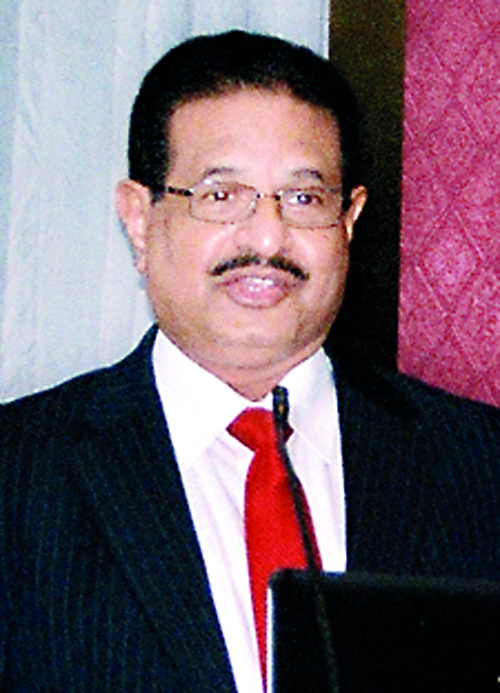Felicitation of retiring NSACP Deputy Director
View(s):It was a simple but poignant felicitation ceremony for a “giant” in the field of venereology.
As Senior Consultant Venereologist and Deputy Director of the National STD/AIDS Control Programme (NSACP), Dr. Kulasiri Buddhakorale retired from service after 31 long years, accolades were showered on him not only by colleagues but also by his students at the ceremony held at the auditorium of the Sri Lanka Medical Association recently.
While his yeoman service was commended by the President of the Sri Lanka College of Venereologists, Dr. Himali Perera, his students took the audience ‘Down Memory Lane’ with the focus being on Dr. Buddhakorale, through a video detailing his career.

Dr. Kulasiri Buddhakorale
It was Consultant Venereologist Dr. G. Weerasinghe who detailed Dr. Buddhakorale’s career: Graduation from the Colombo Medical Faculty in 1980; joining the Anti-VD Campaign in 1982; serving as Medical Officer of the Galle STD Clinic till 1988 and the Central STD Clinic in 1989; completing his post-graduate training in Community Medicine by 1996; overseas training at the Centers for Disease Control in Atlanta, in the United States; a Board certified Specialist in Community Medicine in 1997; and then appointment as a Consultant Venereologist to the NSACP.
Just two instances cited by Dr. Weerasinghe gave an insight into the character of Dr. Buddhakorale. Recalling how the NSACP faced a hiatus in technical leadership when the Health Ministry appointed a Medical Administrator to succeed Dr. Iyanthi Abeywickrema as Director of the Programme in 2007, Dr. Weerasinghe stated that this not only posed a dilemma for the senior consultants, but it nearly resulted in Sri Lanka failing to submit a proposal on HIV prevention to the Global Fund Round 9. At the behest of Dr. Iyanthi, the College of Venereologists had accepted the challenge of developing the Round 9 proposal.
“I would be failing in my duty if I didn’t acknowledge the critical role you (Dr. Buddhakorale) played in formulating and negotiating the Round 9 proposal that was successful in obtaining US$ 12.7 million for HIV/AIDS prevention and care in the country,” he said, adding that this success restored recognition of the technical capacity of the NSACP to implement a national response epidemiologically relevant to the contexts of HIV in the country.
The other incident he brought to mind was how a few words of Dr. Buddhakorale had a great impact. “At a meeting held at the highest level in the Health Ministry with senior staff of the NSACP to discuss issues faced by the Programme, the main solution suggested by the higher-ups was, ‘Let’s bifurcate the organisation. We give the clinics to Hector and prevention can be run by others’. The ministry was proposing the separation of clinical services from prevention,” says Dr. Weerasinghe.
The quick repartee on the part of Dr. Buddhakorale had been, ‘OK, let Hector treat patients and we will run the programme’, pointed out Dr. Weerasinghe, adding that the NSACP continues to be the leader and provider of both clinical and preventive services.
Among those who participated in the felicitation were the Director-General of Health Services, Dr. Palitha Mahipala and NSACP Director Dr. Sisira Liyanage.


